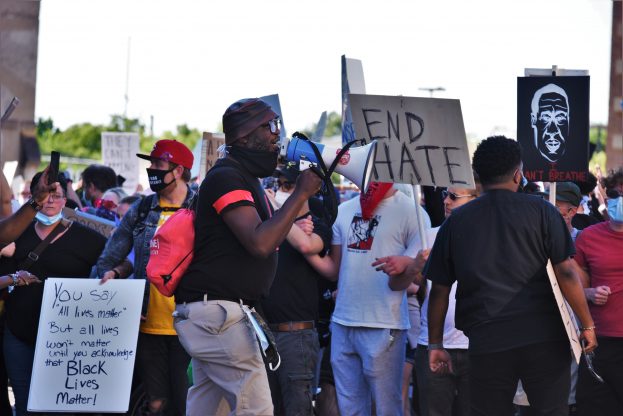
Stony Brook University Interim President Michael Bernstein and President-Elect Maurie McInnis have released a statement regarding the death of George Floyd, praising diversity and condemning racism.
“The killing of George Floyd serves as another painful example of the systemic racial disparities present in our country,” the statement said. “This event is made even more poignant during this time of isolation due to the COVID-19 pandemic, and the unequal burden of the disease on communities of color.”
Floyd, a 46-year-old black man from Minneapolis, was killed on May 25 after a police officer forcefully pinned down Floyd’s neck with his knee during his arrest. A video of the altercation went viral, prompting protests across the country.
McInnis and Bernstein believe that death of Floyd, along with other instances of police violence against black Americans like Ahmaud Arbery and Breonna Taylor, “have served as a profound reminder of the deep-seated racism, discrimination and violence that plague the United States,” according to the statement.
“We must stand up and speak out against injustice and ignorance,” the statement said. “As a public institution of higher learning, we must use our power to address major societal problems. We want to reiterate and reinforce Stony Brook’s commitment to inclusion and acceptance of all who seek to work and study on our campus. We must actively work within our own communities to lead the change in our society we all want to see.”
According to the statement, Bernstein and McInnis have also asked the university’s Chief Diversity Officer, Judith Brown Clarke, to suggest how the community can “drive positive change.” In an email to The Statesman, Clarke wrote that within the next two weeks, she will work together with “existing groups and individuals” throughout Stony Brook University campuses to “ensure the inclusion of students, faculty, staff and alumni.”
“The first step to solving a problem is to admit there is a problem…we have a problem,” Clarke wrote. “We must recognize the violation of human rights and the devastating effects that systemic racism, oppression and violence have on the safety, security and health of communities of color, and ultimately the community at-large. We cannot let these acts be normalized or allow ourselves to become numb to them.”
The State University of New York administration has yet to comment on Floyd’s death.
















